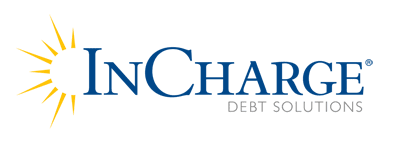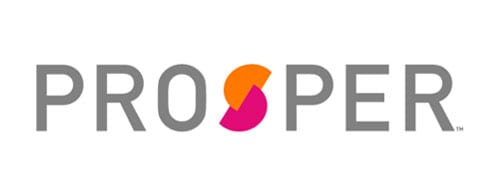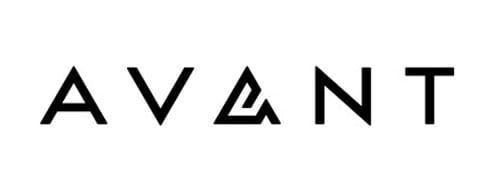Best Debt Consolidation Companies
Debt.org compiled information on six of the top debt consolidation companies in the United States and reviewed them based on services, fees, reviews from the Better Business Bureau, and complaint history.
The review showed the diversity in how companies solved debt problems, the cost of doing so, and the length of time for completion.
What Is Debt Consolidation?
A debt consolidation plan is a method for simplifying your monthly payments and altering your loan terms through a bank loan or debt-relief program. Borrowers can reduce their interest rates to manageable levels and cut the time spent shuffling between credit accounts. Lumping eligible debts into a single payment can make your life easier, and debt consolidation lets you do this efficiently.
How Debt Consolidation Works
Debt consolidation works by combining multiple bills into a single payment and eliminating that payment with either a loan or a debt-relief program.
Debt consolidation simplifies the bill-paying process by making just one payment at a reduced interest rate. It should be more affordable and faster in wiping out debt if done effectively.
What Kinds of Debt Can Be Consolidated?
Most debt-relief companies can help you settle unsecured debts that include:
- Consolidate credit cards
- Unsecured personal loans
- Payday loans
- Medical debt
- Department store credit cards
- Accounts in collections and certain utility bills.
Some companies will require that you have a minimum amount of unsecured debt. Under most circumstances, debt consolidation companies can’t help with mortgages, secured personal loans, or car loans.
What Kind of Debts Can’t Be Consolidated?
Certain debts are out of the question when it comes to debt consolidation. It won’t help in securing funds for a debt-ridden business venture. These programs cater to consumers carrying personal, unsecured debt. Most lenders also exclude student loans. However, some companies may make exceptions. Lastly, debt consolidation loans cannot be used for funding illegal activities, services, or products.
Eligibility Criteria for Debt Consolidation
Even if you've got the right debt, your credit profile could be ineligible for debt consolidation. A low credit score alone may not disqualify you, but here are some things to consider for the best chance at a smooth enrollment.
- Proof of income: This gives the company confidence that you have enough income to succeed in paying off the loan. Most will want to see evidence that your income exceeds your expenses.
- Financial stability: Again, companies want to see that you're on the right track before extending low-interest loan offers. Signs of financial stability could include a long-term job or significant savings.
- Credit history: You need some form of credit history to qualify for a debt consolidation loan. Creditors will also check your credit report to gauge your spending habits and repayment history.
- Equity: Some companies may require equity (home or car) to qualify for larger loans.
Prequalification
Prequalification is an excellent way to shop for loan products without damaging your credit score. Usually, creditors run a hard credit check when applying for a new loan. However, prequalification options allow for a soft credit check so you can view your rate before finalizing a decision. This lets you compare different loan amounts, repayment terms, and interest rates without hindering your credit.
Debt Consolidation Options
There are several ways to consolidate debt, depending on your financial situation, ability to budget and maintain on-time payments each month.
The list of debt consolidation options includes:
- Debt management programs primarily administered by nonprofit credit counseling agencies
- Debt consolidation loans via personal loan; home equity loan; home equity line of credit; balance transfer credit card or 401k withdrawal
- Debt settlement
- Bankruptcy
Benefits and Disadvantages of Debt Consolidation Programs
The primary benefit of debt consolidation is simplifying bill paying by having one monthly payment instead of four, five, or maybe 10 credit card bills.
Other pros in going with debt consolidation include:
- Your new interest rate should be lower than the rates charged by credit card companies.
- A lower interest rate will mean a lower monthly payment.
- An affordable monthly payment accelerates the payoff process.
- Making on-time payments will improve your credit score.
The disadvantages of consolidating debt are minimal – as long as you stick with the program.
Some of the cons are:
- Paying off credit card debt could tempt you to start using the cards again. You should stop – or at least restrict – the use of credit cards.
- There could be fees associated with debt consolidation loans that increase loan costs.
- You must make payments on time every month or risk penalties.
- If you take a secured loan, it puts that asset at risk.
What to Look for in a Debt Consolidation Company
With debt consolidation, success largely depends on maintaining a good working relationship with your creditor and resolve in managing your money.
Customer Service
The first thing a good debt-relief company will do is put you at ease. Companies should provide you with clear answers and have a reputation for integrity and success. Counselors should be trained and certified by a state or national organization.
It helps to know how credit counselors are compensated. If they receive bonuses for selling additional services, that should be a red flag.
Good customer service should also educate you about the root cause of your problems with debt and train you on how to avoid making those mistakes.
Transparency
Choose a debt consolidation company that discloses all terms involved in doing business, and freely provides information to verify its claims. The easiest place to gauge a company's transparency is often its website.
There is standard information that should be on every company’s website:
- Are they stable – How long has the company been in business?
- Who are they – Is there a page that lists its top executives, the company’s physical address, hours of operation, and phone number?
- Choice of programs – Do they offer loans, or is the focus on credit counseling and programs like debt management plans or debt settlement?
- Cost and fees – Do they list all the fees (origination fee, monthly fee, late payment fee) associated with loans or programs? If they offer debt consolidation loans, what are the interest rates?
- Program time frame – How long should it take to pay off the debt? If you receive a loan, is there a prepayment penalty?
- Eligibility – Is there a minimum or maximum amount of debt to qualify? Is there a minimum credit score required? Is this for unsecured debts, or does it include secured debts?
- Customer service – Will you get a personal counselor assigned to you? Can you interact with them online or with a smartphone? Is there a page for objective reviews of the company’s performance?
When a company has nothing to hide, it should have no problem putting all that information on its site to help consumers understand what is involved in finding solutions to their credit problems.
Longevity and Trustworthiness
Companies that have been around 10–15 years develop trust with customers. Their beliefs, values, and performance remain consistent. Providing customers with solutions is why they are still in business.
Most of the companies involved in debt consolidation are accredited by the Better Business Bureau and have A-plus ratings. The BBB is often generous with its ratings, but it's still a helpful resource. It lists the number of complaints companies receive and how many of those complaints were resolved, which could be useful in making a final decision.
Make sure the company you choose has been accredited by the American Fair Credit Council or the International Association of Professional Debt Arbitrators. These organizations ensure companies follow guidelines to protect consumers from unfair lending practices or fraud.
Counseling and Education
An overlooked but vital part of choosing a debt consolidation company is the educational aspect. Will you learn anything useful in avoiding future problems? Educating and counseling consumers is almost exclusively the province of the nonprofit organizations involved in debt consolidation.
The IRS requires nonprofits to provide an educational facet to their service to retain tax-exempt status as 501(c)(3) organizations. Nonprofits do this by offering credit counseling, almost always at no cost.
Counselors review a consumer's finances, focusing on the circumstances that caused financial problems and how managing budgets will solve them.
If you choose this route, be sure the company's counselors are trained and certified. Contact the National Federation for Credit Counseling (NFCC) if you have questions on certification.
Avoiding Debt Consolidation Scams
The debt-relief business is no stranger to scams. Beware of the common red flags consumers face when consolidating debt.
Some of the things to watch for when choosing a company or service include:
- Claiming nonprofit status when they’re a for-profit business.
- Offering guarantees to settle your debt for pennies on the dollar.
- Seeking fees for services before reaching a written agreement with your creditors.
- Using aggressive sales pitches, asking you to act quickly on a decision that requires research and time.
- Promising a “quick fix” solution. All debt relief programs take time, most of them between three and five years. Be suspicious of companies promising faster results.
How to Choose a Debt Consolidation Loan
Choosing a debt consolidation company can be a difficult process, but you can ease the strain of making the right decision by following this process:
Step 1: Do Your Research
Compare online and traditional lending resources. Don’t settle for your first offer. Apply the information you gathered to the financial situation you’re facing and be sure it solves the problems.
Step 2: Assess Your Strengths
For example, suppose you have enough income to pay down debt but need a personalized regimen or form of direction to get started. A debt management program might be better than a debt consolidation loan or debt settlement.
Step 3: Know Your Weakness
If you've let the amount of debt become overwhelming, you've even tried payday loans! – then, debt settlement might be your best consolidation choice.
Step 4. Make a Careful, Considered Choice
Understand the advantages of the solution you choose. It's important to find a program that offers the type of debt consolidation you want, makes you feel comfortable dealing with their staff and requirements, and educates you while you're in the program to limit future setbacks.
Step 5: Be Realistic about a Timetable
Debt consolidation programs can erase debt in 3-to-5 years. It could go faster, but only if you can direct more of your income into debt. You likely didn't get into debt in a hurry. It's not likely you'll get out in a hurry. Don't be focused on the time. Focus on making good spending choices and on-time debt payments.
Eliminating debt is a worthwhile challenge. Reach out for help when deciding which path is best for you. All nonprofits offer free, no-strings-attached counseling.
Alternatives to Debt Consolidation
Debt consolidation works for consumers with stable incomes, often regardless of credit score, but not everyone will qualify. Some may not make enough to cover the monthly payments, while others may find alternative solutions to work better for their unique situation. Credit counselors can inform you of your options and let you know whether debt consolidation is in your best interest. Here are some alternatives to turn to when debt consolidation falls short.
- Credit counseling: Credit counseling is a free or low-cost service offered by debt consolidation companies. Counselors will review your credit report while building a budget that works to balance your income and expenses. They may suggest enrolling in a debt management program or participating in housing or bankruptcy counseling.
- Debt payoff strategies: It's foolish to tackle your debt without a plan. Making payments without considering interest or the amount of debt per account will cost you in the long run. Ramp up the payment process by incorporating the debt snowball or debt avalanche Remember to use a loan calculator when factoring monthly payments.
- Balance transfer credit cards: let you transfer the balance from debt-heavy credit cards to a new credit card with a low-interest rate. Many consumers will find offers for 0% interest between 12-18 months. This gives them up to a year and a half to pay off debt without accruing interest. Be mindful of transfer fees typically averaging 2% to 3% of the debt transferred.
- Home equity loan or Home equity line of credit (HELOC): If you’re a homeowner, consider a home equity loan or home equity line of credit. These offer lower interest rates than many alternatives, but your home will be at risk should you default on payments.
- 401k or retirement loans: Most people can borrow up to 50% of their 401k and have up to five years to pay it back before the IRS smacks them with an early withdrawal penalty. A significant downside to this is the loss on investment return since your money will no longer be earning interest.
Sources:
- NA, ND. Credit and Debt Counseling. Retrieved from https://www.nfcc.org/our-services/credit-debt-counseling/
- Singletary, M. (2011, June 16) Debt Consolidation Companies: 6 Red Flags. Retrieved from http://www.pbs.org/wnet/tavissmiley/a-wealth-of-knowledge/debt-consolidation-companies-6-red-flags/
- NA (2010, July) Debt Relief Services & the Telemarketing Sales Rule: A Guide for Business. Retrieved from https://www.ftc.gov/tips-advice/business-center/guidance/debt-relief-services-telemarketing-sales-rule-guide-business
- Shannon. (2012, April 25) How To Find A Reputable Debt Consolidation Company. Retrieved from http://blog.readyforzero.com/how-to-find-a-reputable-debt-consolidation-company/#.V0W69Pkwjbh
- Friedberg, B. (ND). Compare Reviews for Debt Consolidation Companies. Retrieved from https://www.consumeraffairs.com/debt_counsel/
- N.A. (ND) Pay off credit card balances and save. Retrieved from: https://www.sofi.com/personal-loan-credit-card-consolidation/
- N.A. (ND) Personal Loans. Retrieved from: https://www.avant.com/personal-loans/
- N.A. (ND) Personal Loans Through Prosper. Retrieved from: https://www.prosper.com/trusted/personal-loans
- N.A (ND) Personal Loans. Retrieved from: https://www.lendingclub.com/loans/personal-loans-pd-1







